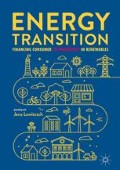Abstract
Consumer ownership of renewable energy (RE) is essential to the overall success of the energy transition. Politicians across the planet are discovering its power to make energy infrastructure projects publicly acceptable. Countless grassroots initiatives rising across the board—some at the municipal level, some led by individuals and yet others by organised local citizens—testify to the rising awareness of the necessity of shifting away from fossil to renewable energy sources (RES) to arrest global warming. However, drivers and political motivations underlying the Energy Transition often are heterogeneous including conflicting elements resulting in discrepancies between the declared goals regarding the deployment of RE and the actually implemented energy policies. We observe that while declared aims—including, for example, prosumership—are easy to identify the chances for realisation need to be carefully evaluated against the background of the current challenges and the driving forces behind policy making which show a strong path dependency. At the same time energy/fuel poverty remains a problem in the majority of countries under consideration while the absence of a common definition stresses that the problem is not sufficiently acknowledged. Although the Renewable Energy Directive II paves the way to a coherent EU-wide legal framework, it still needs to be complemented by the Internal Electricity Market regulation and Directive, transposed into national law and subsequently filled with implementing provisions. Finally, the successful adoption of the Clean Energy Package should be a welcome occasion to set new priorities in energy research.
Access this chapter
Tax calculation will be finalised at checkout
Purchases are for personal use only
Notes
- 1.
Results of a cross-country study in 19 EU Member States on expenditure for research, development and demonstration in energy between 1974 and 2007 (EC/Ecofys 2014).
References
EC/Ecofys. (2014). Subsidies and costs of EU energy, final report, p. 29. http://bit.ly/1CxT8gM.
ENERGY ATLAS. (2018). Energy Atlas 2018 – Facts and figures about renewables in Europe. Heinrich Böll Foundation, Berlin, Germany; Friends of the Earth Europe, Brussels, Belgium; European Renewable Energies Federation, Brussels, Belgium; Green European Foundation, Luxembourg.
Frankfurt School. (2017). Global trends in renewable energy investment. FS-UNEP Collaborating Centre, p. 78. http://bit.ly/2ntIJnq.
Fücks, R. (2013). Intelligent wachsen: Die grüne Revolution. München: Carl Hanser-Verlag.
Hardin, G. (1968). The tragedy of the commons. Science, 162(3859), 1243–1248.
IdW. (2012). EEG-Umlage – Ärmere Haushalte sind besonders belastet. Institut der deutschen Wirtschaft Köln Nr. 56/17. Dezember.
IEA. (2015). World Energy Outlook 2015.
IRENA. (2017). Renewable energy and jobs. Annual Review 2017. http://bit.ly/2qViXHb.
Jackson, T. (2009). Prosperity without growth: Economics for a finite planet. London: Earthscan.
Rommel, J., Radtke, J., von Jorck, G., Mey, F., & Yildiz, Ö. (2018). Community renewable energy at a crossroads: A think piece on degrowth, technology, and the democratization of the German energy system. Journal of Cleaner Production, 197(Part 2), 1746–1753.
Roth, L., Lowitzsch, J., Yildiz, Ö., & Hashani, A. (2018). Does (Co-) ownership in renewables matter for an electricity consumer’s demand flexibility? Empirical evidence from Germany. Energy Research & Social Science, 46, 169–182.
Seyfang, G. (2009). The new economics of sustainable consumption. Basingstoke: Palgrave Macmillan.
Author information
Authors and Affiliations
Corresponding author
Editor information
Editors and Affiliations
Rights and permissions
Copyright information
© 2019 The Author(s)
About this chapter
Cite this chapter
Lowitzsch, J. (2019). Conclusions: The Role of Consumer (Co-)Ownership in the Energy Transition. In: Lowitzsch, J. (eds) Energy Transition. Palgrave Macmillan, Cham. https://doi.org/10.1007/978-3-319-93518-8_31
Download citation
DOI: https://doi.org/10.1007/978-3-319-93518-8_31
Published:
Publisher Name: Palgrave Macmillan, Cham
Print ISBN: 978-3-319-93517-1
Online ISBN: 978-3-319-93518-8
eBook Packages: Economics and FinanceEconomics and Finance (R0)

